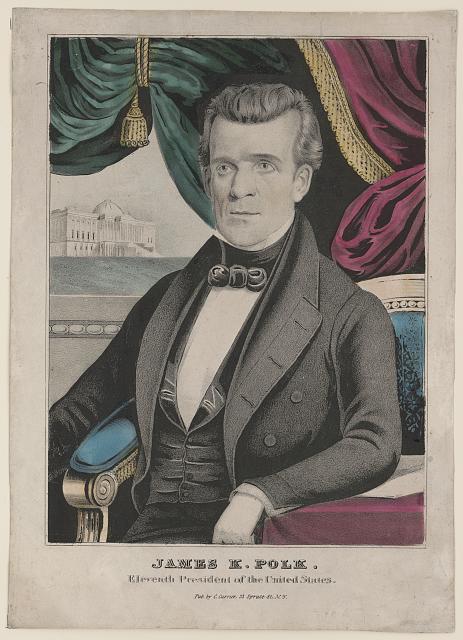President James K. Polk played a pivotal role in shaping the United States during a transformative period in its history. Often referred to as the “Manifest Destiny President,” Polk’s presidency was characterized by his commitment to expanding the country’s borders and fulfilling the notion of manifest destiny. This article delves into Polk’s pursuit of territorial expansion, examining his policies and actions that had a lasting impact on American history.
James K. Polk’s presidency, which spanned from 1845 to 1849, was marked by an unwavering dedication to realizing the concept of manifest destiny. This belief held that the United States was fated to expand its territory across the North American continent. Polk’s vision and determination drove him to pursue a bold agenda focused on territorial acquisitions and westward expansion.
Polk’s presidency coincided with a period of heightened territorial disputes, most notably the Oregon boundary dispute with Britain and the annexation of Texas. As part of his presidential campaign promises, Polk sought to resolve these conflicts in favor of American interests and extend the nation’s borders to the Pacific Ocean.
Polk’s successful negotiation of the Oregon Treaty with Great Britain in 1846 secured the vast territory of Oregon for the United States. Through diplomacy and compromise, Polk managed to settle the dispute along the 49th parallel, ensuring American control over present-day Oregon, Washington, Idaho, and parts of Montana and Wyoming. This achievement solidified America’s presence in the Pacific Northwest and opened up new opportunities for settlement and economic growth.
The annexation of Texas was another crucial achievement during Polk’s presidency. Texas had declared independence from Mexico in 1836 and sought to join the United States, but its admission was delayed due to political controversy. Polk seized the opportunity, and in 1845, he oversaw the annexation of Texas as the 28th state. This move expanded America’s territorial reach and heightened tensions with Mexico, setting the stage for the Mexican-American War.
The controversial conflict with Mexico dominated Polk’s presidency and became a linchpin in his pursuit of manifest destiny. Polk viewed the war as an opportunity to acquire additional land for the United States. Polk’s administration claimed that the disputed border between Texas and Mexico was at the Rio Grande and sent troops to defend this boundary. When war broke out, American forces swiftly overpowered Mexican resistance, leading to the signing of the Treaty of Guadalupe Hidalgo in 1848.
Under the terms of the treaty, Mexico ceded vast territories to the United States, including present-day California, Nevada, Utah, Arizona, New Mexico, and parts of Colorado and Wyoming. The territorial gains from the Mexican-American War expanded the United States’ western frontier, fulfilling Polk’s vision of manifest destiny.
Polk’s ambitious pursuit of territorial expansion had profound consequences for the nation. It exacerbated sectional tensions between the North and South regarding the expansion of slavery and further fueled the debate over the balance of power between free and slave states.
Critics argue that Polk’s aggressive pursuit of manifest destiny was a reckless endeavor that ignored the rights and sovereignty of indigenous populations and disregarded the feelings of neighboring countries. However, supporters highlight Polk’s strategic foresight and assert that he successfully navigated complex diplomatic negotiations to secure vital territories that would eventually contribute to the economic growth and development of the United States.
James K. Polk’s presidency will forever be associated with the concept of manifest destiny. His relentless pursuit of territorial expansion reshaped the United States, adding vast territories to the nation and extending its reach from coast to coast. Whether celebrated or critiqued, Polk’s lasting legacy as the “Manifest Destiny President” is a testament to his determination and vision in shaping the future of the American nation.
